How much does it cost to run a dual zone air fryer?
And top tips for lowering running costs

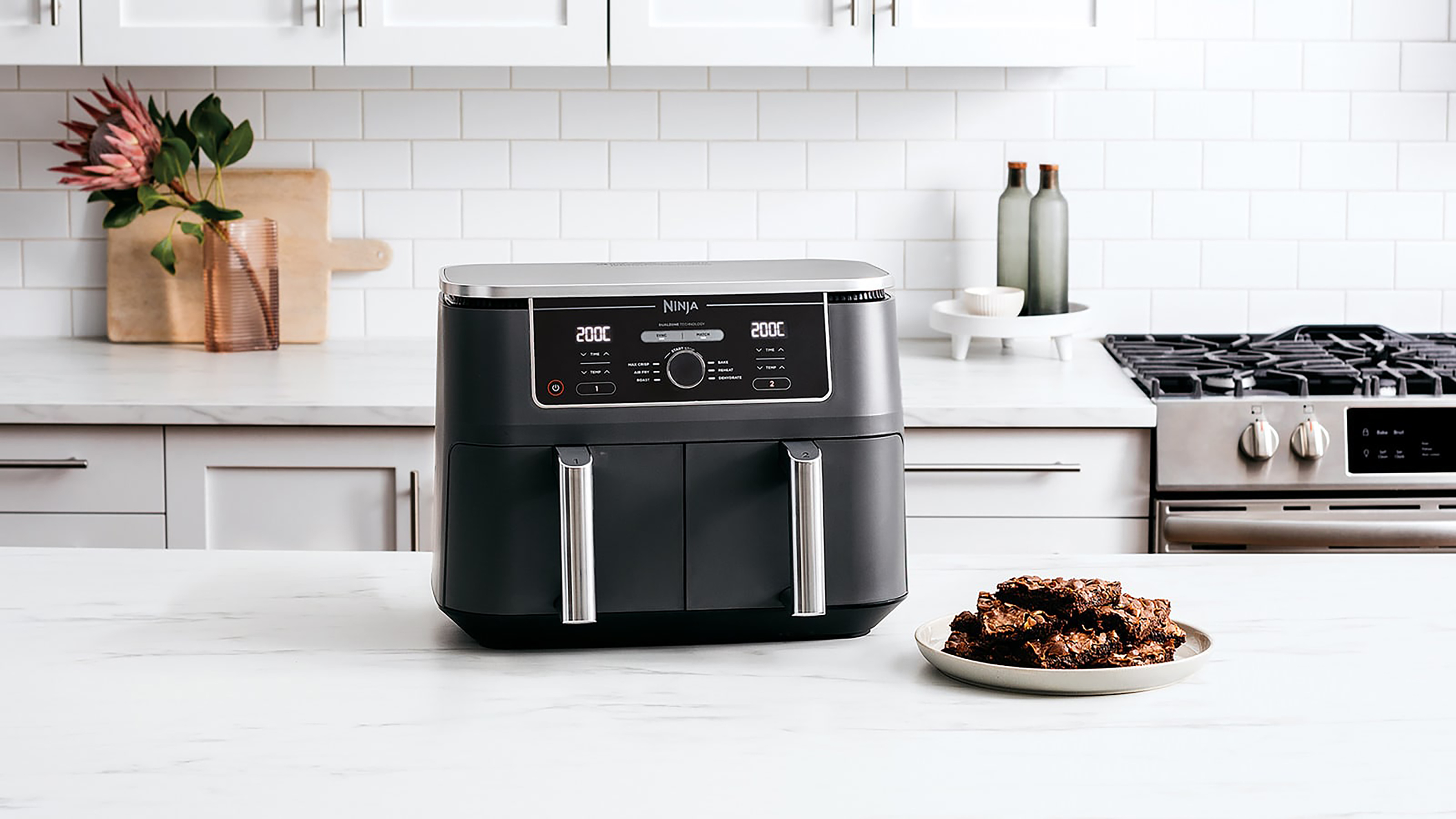
Our air fryer is easily one of our most used kitchen appliances and for good reason. Not only does it allow us to cook some tasty meals in a fraction of the time that it would in a traditional gas or electric oven. But the best air fryers can even save you money in the long term.
If you’ve been thinking about investing in an air fryer and more specifically one of our favourite dual zone models, you may have wondered how much it costs to run a dual zone air fryer? Well, we’ve calculated exactly how much electricity a dual zone air fryer uses and what this will cost with the current energy price cap.
Energy prices have fallen a little in recent months, with predictions of another decrease later this year. But every little helps when it comes to saving energy at home. So, keep reading to find out exactly how much it will cost you to run a dual zone air fryer with average usage, as well as whether or not it can save you money in the long run.
How much electricity does a dual zone air fryer use?
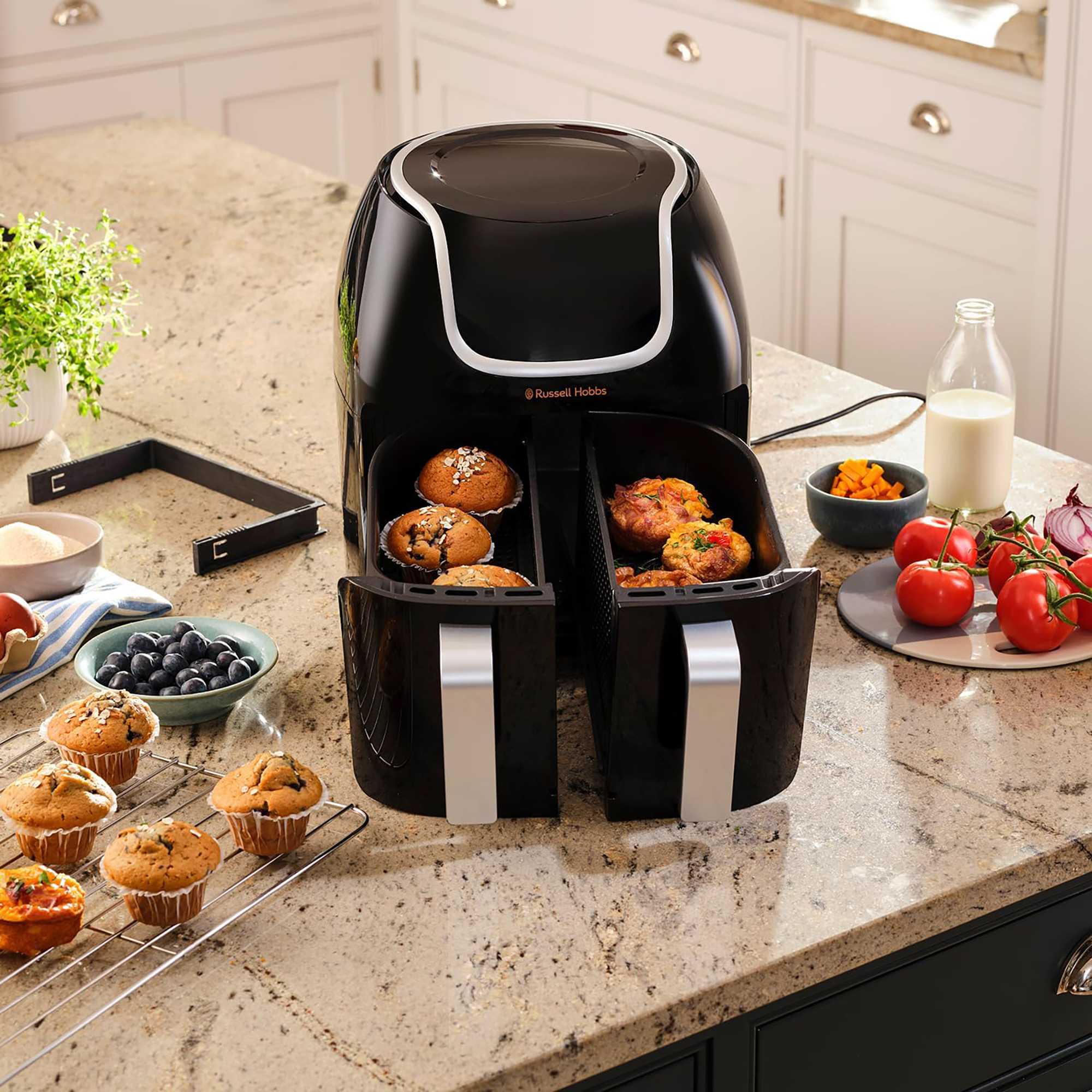
'One of the benefits of a dual zone air fryer, compared to a traditional air fryer, is the fact that ‘the dual drawers allow you to cook an entire meal in one go, both main and sides, without having to use any other energy source,’ explains Saul Davies, buying director at Salter.
The amount of electricity a dual zone air fryer uses is really dependent on the amount of time it is being used for, alongside the specific model and its size,’ according to Hannah Hamer, assistant marketing manager at Russell Hobbs. ‘Smaller models will use a lot less electricity in comparison to larger models that require extra electricity to power.’
Even though most dual zone air fryers are larger in size and capacity, when compared to the average air fryer, you can still save a significant amount of energy and money versus using a conventional oven.
How much does it cost to run a dual zone air fryer?
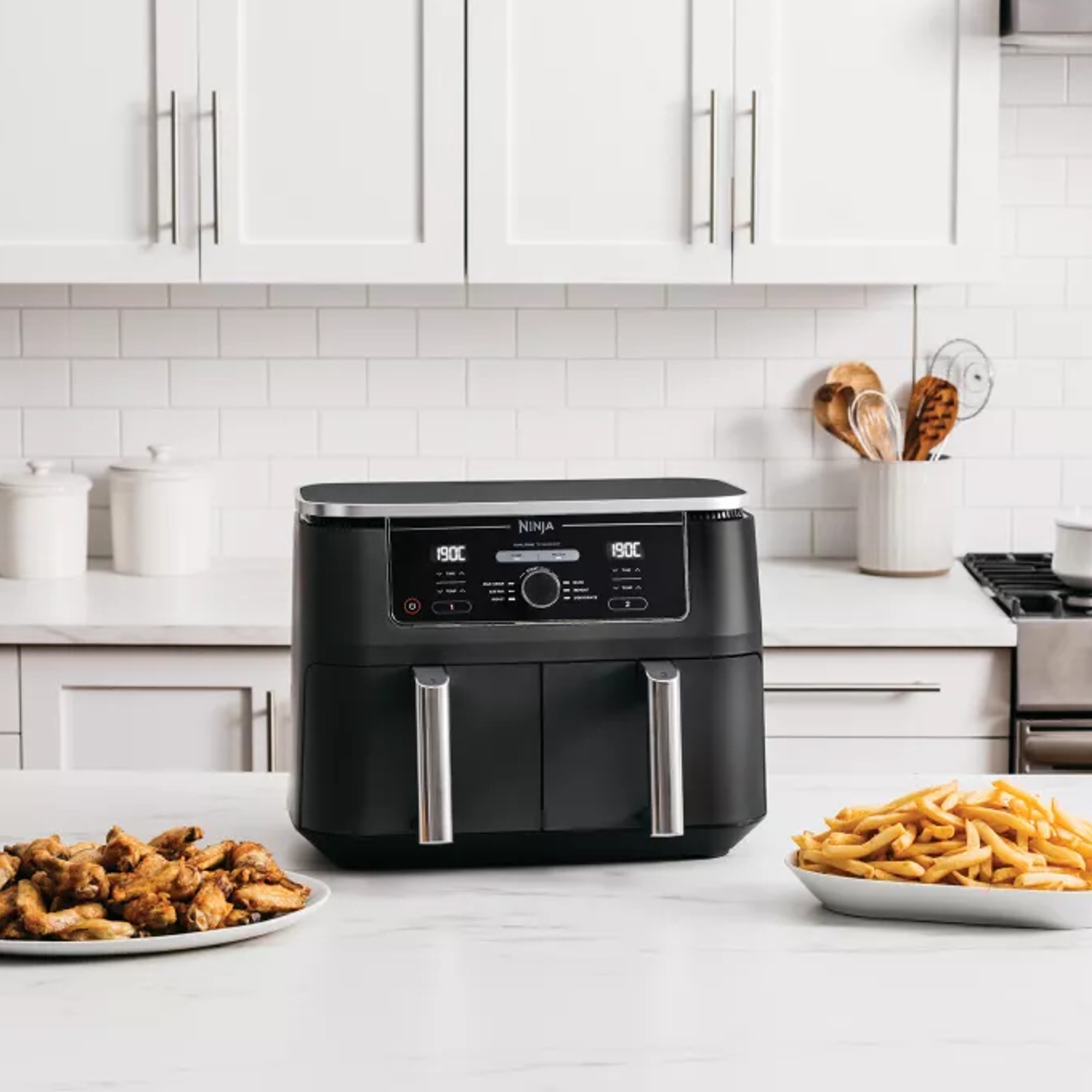
If you want to work out exactly how much it costs to run a dual zone air fryer, you will need to know what you pay per kWh (kilowatt hour), which you can find on your energy bill.
Sign up to our newsletter for style inspiration, real homes, project and garden advice and shopping know-how
‘The current price for kWh is 30p, however since the recent Ofgem announcement on 25th August, from October 2023 we can expect prices to fall to 27p per kWh,’ reveals Marie Urmston, Energy Expert from Love Energy Savings. It is also worth noting that the next quarterly energy price cap announcement will be made in November 2023, which will cover the period of January to March 2024.
Since the price guarantee has capped average unit prices at 27p per kWh for electricity from October onwards, this is the figure that we have used to calculate how much some dual zone air fryers could cost to run at the moment.
Much like with how we determined how much it costs to run an air fryer, we also based our calculations on 30 minutes of usage each day, given that air fryers typically take half as much time as an electric or gas oven to cook our favourite dishes. But if you're using your dual zone air fryer for an average of one hour per day, these figures will double.
- An example 1800W dual zone air fryer used on average for 30 minutes a day will cost roughly £1.70 per week, £7.29 per month and £88.69 per year.
- An example 2400W dual zone air fryer used on average for 30 minutes a day will cost roughly £2.26 per week, £9.72 per month and £118.26 per year.
- An example 2700W dual zone air fryer used on average for 30 minutes a day will cost roughly £2.55 per week, £10.93 per month and £133.04 per year.
Once you know exactly how much you pay for electricity per kWh, you can work out the cost of your dual zone air fryer by multiplying this number by your air fryer's kWh.
Is it cheaper to use a dual zone air fryer than a traditional oven?
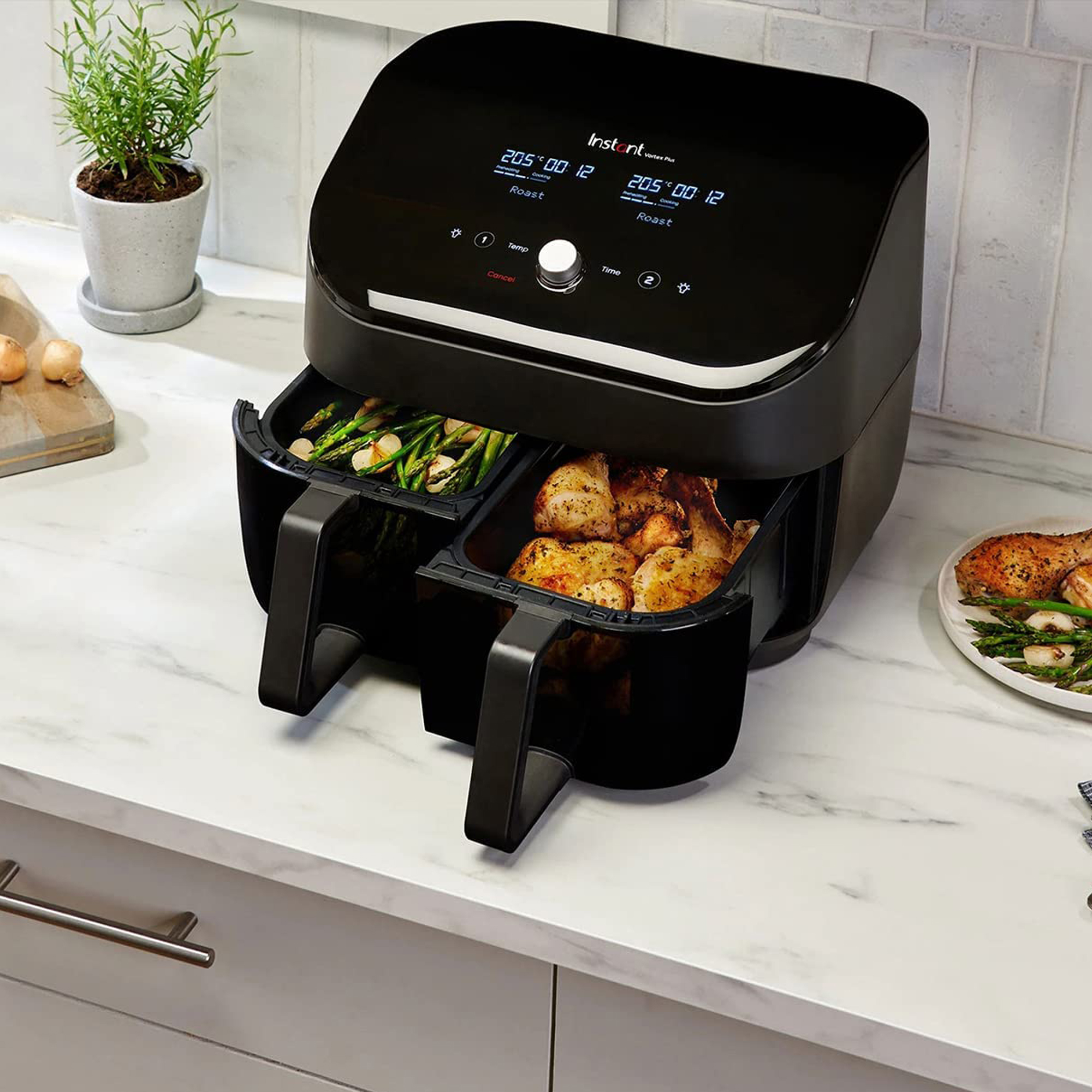
Typically it is cheaper to run an air fryer, even a dual zone air fryer, versus a traditional oven. This is because air fryers do not need to be preheated in the same way that an electric or gas oven does. Because of this, they are immediately ready to use and start cooking with.
‘A traditional electric oven consumes around 2,000 to 5,000 watts, costing around 85p an hour to run, and takes a lot longer to pre-heat compared to an air fryer,’ concurs James Hwang, SEO Manager at Studio.
How can I cut the costs of running a dual zone air fryer?
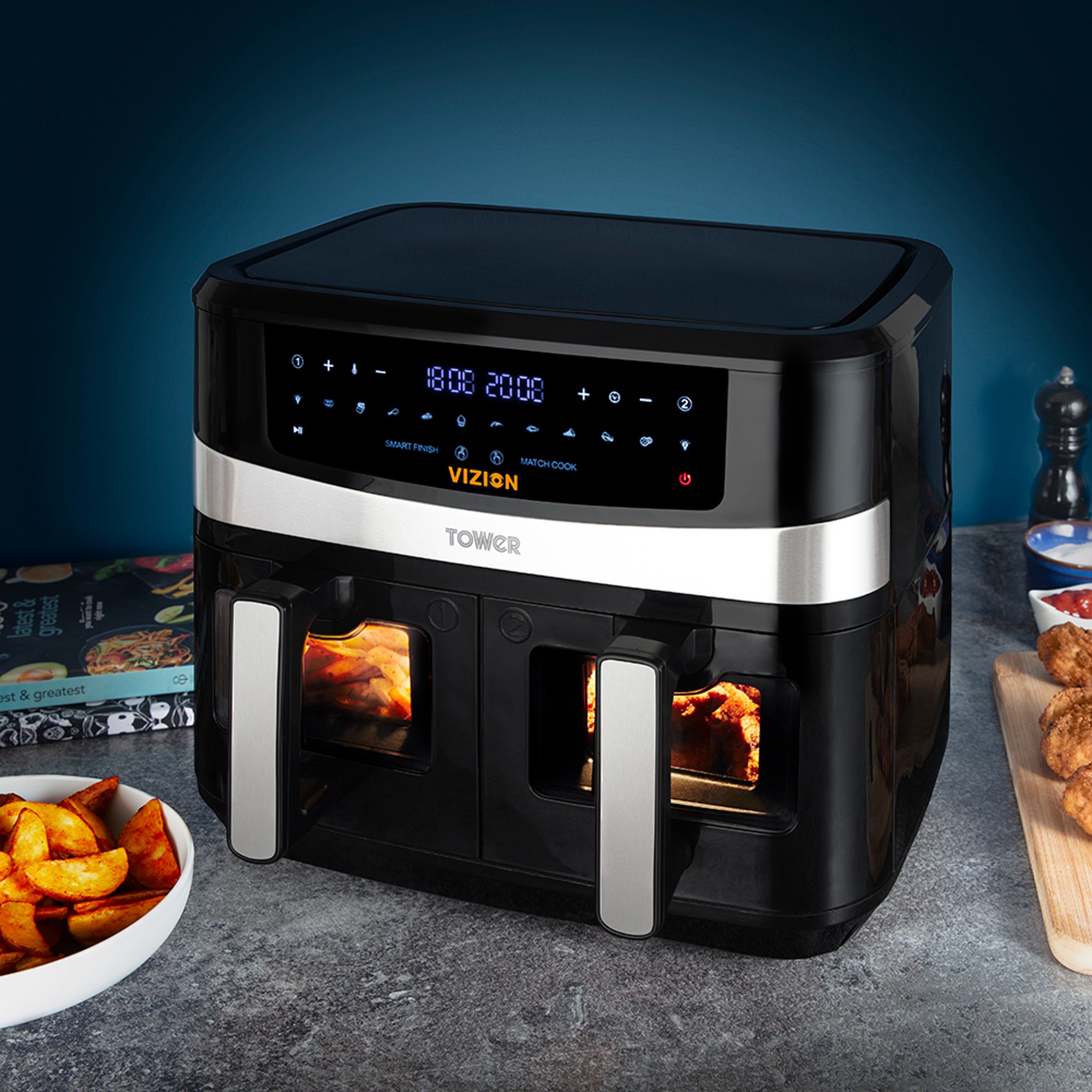
While it is cheaper to use an air fryer compared to a traditional electric or gas oven, there are still some ways to keep costs down by using your dual zone air fryer more efficiently.
‘To keep the cost of running your air fryer as low as possible, refrain from opening the air fryer drawer regularly as this allows heat to escape and increases cooking time, and therefore electricity costs. Instead, only open the drawer once when you’re halfway through cooking, to shake the contents and ensure even distribution of heat,’ advises Saul from Salter.
You’ll also want to ‘make sure the appliance is only plugged in and switched on when you need to use it,’ adds Hannah from Russell Hobbs.
Another top tip; ‘make sure you use the correct setting,’ points out James from Studio. ‘Air fryers usually have different settings, so using the right one will make sure your food is cooked at the best time and doesn’t use unnecessary electricity.’

Ellis Cochrane has been a Freelance Contributor for Ideal Home since 2023. Ellis has been writing about homes, interiors and gardens for four years now, with her also contributing to House Beautiful, Country Living, Expert Reviews, Real Homes and Stylist.